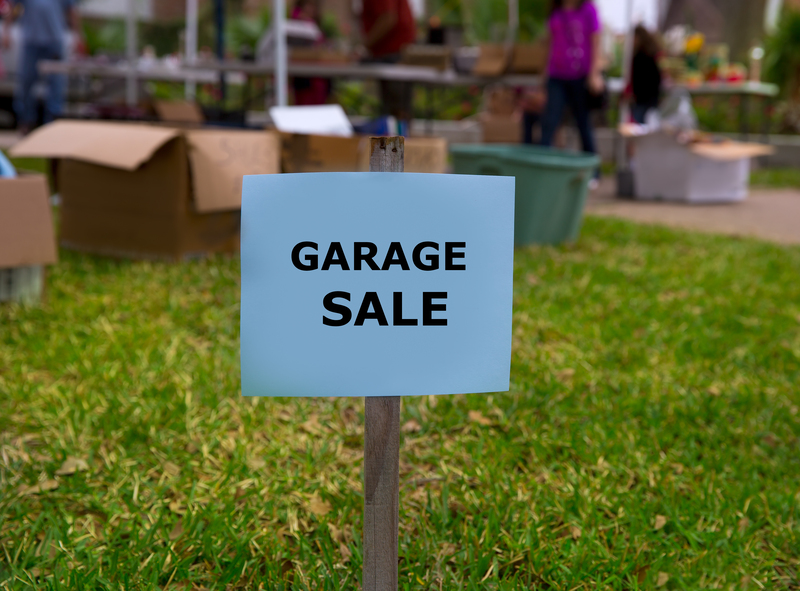How to Handle Bulky Waste Items Without Breaking the Bank
Dealing with unwanted large items can be a daunting task, especially if you're trying to save money. Bulky waste items--like furniture, appliances, mattresses, and large garden debris--tend not to fit in regular trash bins and often come with significant disposal fees. In this comprehensive guide, we'll explore smart, affordable, and environmentally conscious ways to dispose of bulky items without stretching your budget. Whether you're clearing out your house, moving, or making renovations, read on for practical solutions to your bulky waste disposal challenges.
Understanding Bulky Waste and Why It's a Challenge
Before diving into disposal solutions, it's useful to know what qualifies as bulky waste. Typically, this term includes:
- Old sofas, couches, and easy chairs
- Mattresses and bed frames
- Refrigerators, washing machines, and stoves
- Garden waste like branches and felled trees
- Carpets and large rugs
- Miscellaneous large household items
Most regular municipal waste collection services do not accept these items during their curbside pickups. If they do, they may charge extra fees or have strict volume and weight limits. As a result, many homeowners and tenants struggle to find cost-effective ways to get rid of bulky items.

The Cost of Bulky Waste Disposal: Why Can It Get Expensive?
There are several reasons why bulky item disposal can be pricey:
- Specialized handling and large transportation vehicles needed
- Increased landfill charges for bigger, heavier items
- Potential hazardous components (e.g., refrigerant in fridges)
- Extra administrative and labor costs for haulers
Fortunately, there are multiple strategies you can use to dispose of large waste cheaply or even for free. Let's break them down.
1. Reuse and Repurpose: Give Items a Second Life
Assess Whether Your Items Still Have Value
One person's junk is another's treasure! Before you trash that old sofa or washing machine, ask yourself: could it serve someone else? Donating, selling, or giving away unnecessary items is sustainable, socially responsible, and zero-cost--or may even earn you a little cash.
Sell Online or in Local Markets
- Online platforms: List items on Craigslist, Facebook Marketplace, eBay, OfferUp, or Letgo. Often, buyers will collect them directly, saving you transportation hassles.
- Local community boards: Post on neighborhood apps or bulletin boards.
- Yard or garage sales: Group smaller bulky items (like chairs, tables, and appliances) for in-person sales.
Donate to Charities or Nonprofits
- Thrift stores and organizations: Goodwill, Salvation Army, Habitat for Humanity ReStores, and other charities may accept gently used furniture and appliances. Sometimes, they provide free pickup.
- Local shelters and schools: They might be in need of beds, office furniture, or working large appliances.
Repurpose or Upcycle Items
- Turn an old ladder into a bookshelf or garden trellis.
- Transform a bathtub into a chic flower planter.
- Use wood from furniture for DIY projects.
With a little creativity, many bulky household items can avoid the landfill, and you won't have to pay disposal fees at all!
2. Use Free Bulky Waste Collection Services
Check with Your Municipality
Many cities and towns offer free bulky waste pickups--sometimes once or twice a year. These programs are typically advertised on local government websites or in community newsletters. Here's how to take advantage:
- Review guidelines and schedules: Confirm collection days, limits on item size and quantity, and any advance scheduling requirements.
- Pre-book your slot if necessary: Some cities require residents to register in advance for pickups.
- Follow preparation rules: Many programs require items to be placed curbside, dismantled, or separated by material type.
It's important to note that not all items are accepted. Refrigerators, hazardous waste, and construction materials are often excluded. Check your local policies for details.
3. Take Advantage of Bulk Waste Drop-off Events
Annual or Quarterly Cleanup Days
Municipalities often organize large item drop-off events. These are usually free or low-cost events intended to help residents get rid of bulky waste responsibly.
- Check city event calendars: Look for 'Spring Clean', 'Cleanup Day', or 'Household Hazardous Waste' events.
- Be prepared to transport items: You will typically need to bring your large items to a central collection point.
- Bring ID or proof of residence: Many programs restrict participation to local residents only.
Some areas even offer periodic e-waste and white goods recycling days for items like fridges, stoves, and washing machines.
4. Reduce Costs by Sharing or Splitting Removal Services
Group Collection with Neighbors
Removal companies often charge less when collecting items from a single neighborhood or block as it cuts their transportation costs. Connect with neighbors through social media or community groups and schedule a joint pickup.
- Contact a local hauler or junk removal service: Ask about group discount rates.
- Coordinate a date and time for everyone to put out their large waste items together.
- Split the costs equally or based on the amount each household contributes.
This can result in significant savings and also promotes community cooperation!
5. Rent a Dumpster Only When Necessary--and Fill It Efficiently
While dumpster rental can be costly, it's sometimes the only option--especially during extensive renovations or clear-outs. Here are tips on getting the best value:
- Share the dumpster with neighbors: Split rental fees and fill the dumpster together.
- Choose the correct size: Overestimating means you'll pay for more space than you need.
- Schedule your loading carefully: Plan ahead so you can load everything quickly and efficiently, avoiding extra rental time fees.
- Compare quotes from multiple companies to get the best rates.
6. Utilize Landfills and Recycling Centers
Direct Drop-off: Check Local Policies
Many regional landfills and recycling centers accept bulky household waste for modest fees. Some even offer free drop-off days.
- Identify your nearest landfill or waste center: Visit your local government's website for locations and accepted materials.
- Prepare your items: Most facilities require appliances to be drained of fluids, and electronics may need to be separated.
- Bring proof of residency for discounted or free local rates.
Recycle What You Can
Certain bulky waste, especially metal appliances, scrap wood, and old electronics, can be recycled--sometimes for free or at a reduced rate compared to dumping.
- Scrap metal dealers may accept washers, dryers, and other metal-heavy items at no cost--or even pay you!
- Electronics recycling events occur in most towns a few times per year.
- Wood chipping centers may recycle large branches and timber for free.
Disposing of large waste sustainably can ultimately save you money--many recyclers incentivize eco-friendly behavior and help divert items from landfills.
7. Think Ahead: Minimize Future Bulky Waste Generation
Prevention is often the best cost-saving solution. Here's how you can reduce future bulky disposal needs:
- Choose durable, multi-purpose furniture that lasts or can be easily repaired.
- Buy second-hand or upcycled goods to keep items in the reuse stream.
- Rent or borrow large equipment (such as party tents, exercise machines, or garden tools) instead of purchasing new items that become one-time bulky waste.
- Practice "one-in, one-out" policies to avoid household accumulation of junk.
A little foresight will not only save you money in the long run, but also helps the environment.
8. What NOT to Do: Illegal Dumping and Its Consequences
Never be tempted to dump bulky items illegally in vacant lots, roadside ditches, or wilderness. Not only is this harmful to the environment and community, but violators face:
- Fines--ranging from hundreds to thousands of dollars
- Cleanup fees charged by local authorities
- Permanent criminal records in some jurisdictions
Always use appropriate disposal methods for bulky household waste. It's the right thing to do, and usually costs less in the end.

Quick Tips to Save Even More Money with Bulky Item Disposal
- Scout around for promotional offers from waste haulers or removal companies.
- Join local online "Buy Nothing" or "Freecycle" groups to give away items you no longer need.
- Use municipal "large waste" stickers or tags if your local trash service offers this low-cost option.
- Disassemble items before pickup to fit more into allowed space or lower disposal fees.
- Ask appliance retailers about "take-back" programs when purchasing new items.
Conclusion: Smart, Affordable, Responsible Solutions
You don't need a hefty bank balance to get rid of unwanted large items. With a little research, advance planning, and community cooperation, you can dispose of bulky waste items without breaking the bank. Choose from free municipal programs, donation, selling or swapping, group pickups, and creative repurposing--and always keep sustainability in mind.
Need help fast? Contact your local government or recycling center to learn about your nearest options for affordable, responsible disposal. Taking the time to explore these alternatives is good for your wallet, your neighborhood, and the planet!